
Design
The Art of Arrangement
Exploring versatile ways to style art with presence and longevity.
Placing artwork in a space is a creative and personal experience. From elevating an interior to expressing one's individuality art can evoke an array of emotions for years to come. There are many components involved when styling art. To achieve a balanced type of aesthetic appeal we recommend keeping the following elements in mind.
Artwork should transform and define a setting. What tones of colour, textures and themes can be incorporated? Is attention required toward a focal point or a particular narrative? What would the space encapsulate? Here are our most preferred ways to showcase treasured art pieces with extraordinary impact.
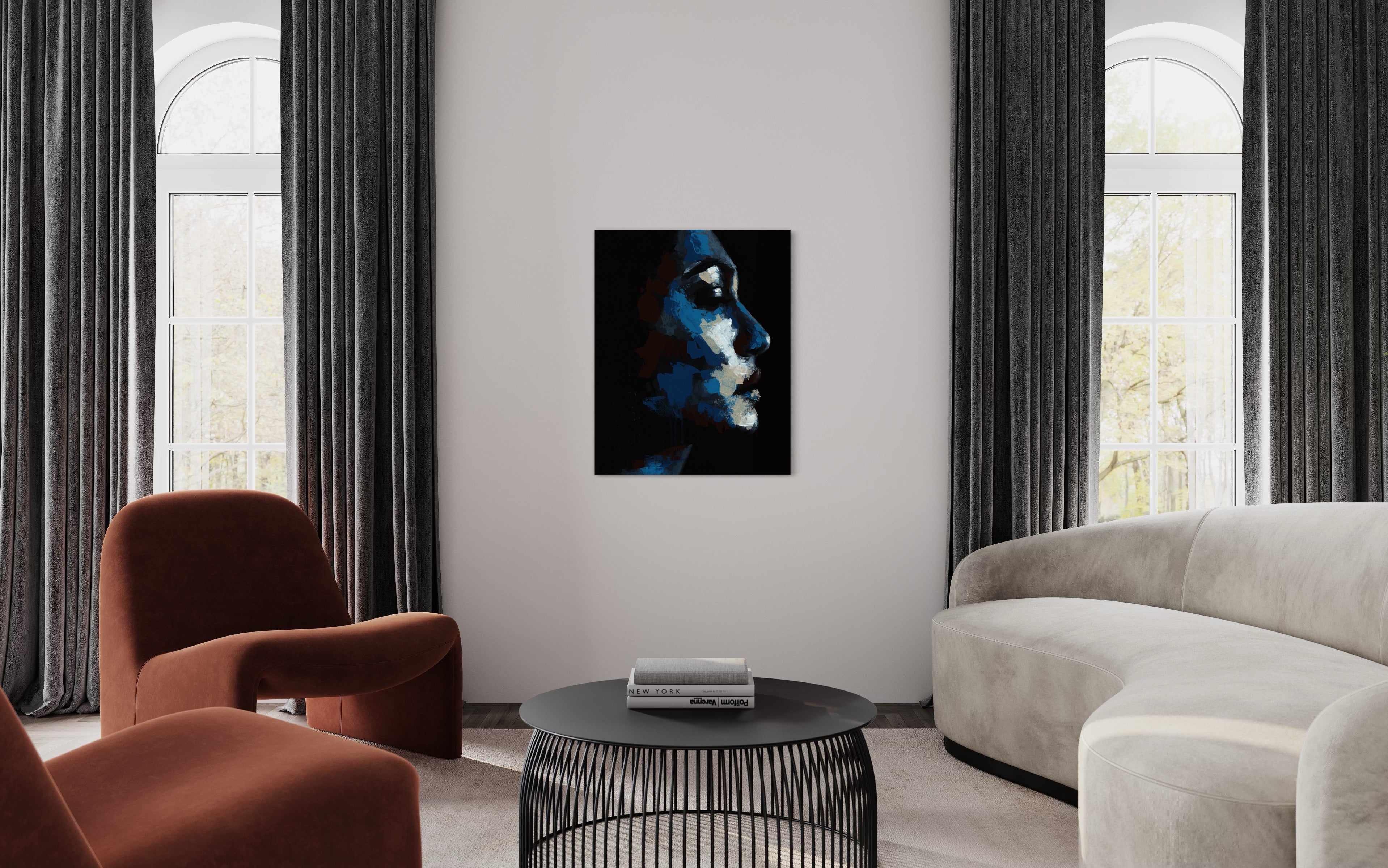
Style No. 01
A focal point in a living room
A living room is a significantly shared space in the home used for quality time, entertaining guests, reading and relaxation. The general mood requires people to be seated which is the ideal setting for a central piece of art that commands attention.
In this instance artwork should be hung lower than usual. We recommend aligning the lowest part of the art piece with the highest point of the lounge.
For art pieces directly above a lounge we recommend allowing spacing for approximately 10cm.

Style No. 02
Integrate with a feature
There are many ways to merge art with an accent wall. Artwork and accent walls individually possess the ability to transform an interior and when both combined it’s only natural to expect a dynamic effect.
When working with a wall we recommend creating a surface that ties into an existing architectural feature in the space. Aim to explore different shades, materials and texture such as wall paint, wall paneling, timber, brick veneer, stone and tile.
When incorporating an art piece be sure to play with visual balance. Depending on the visual weight the art piece should complement the accent wall and vice versa.
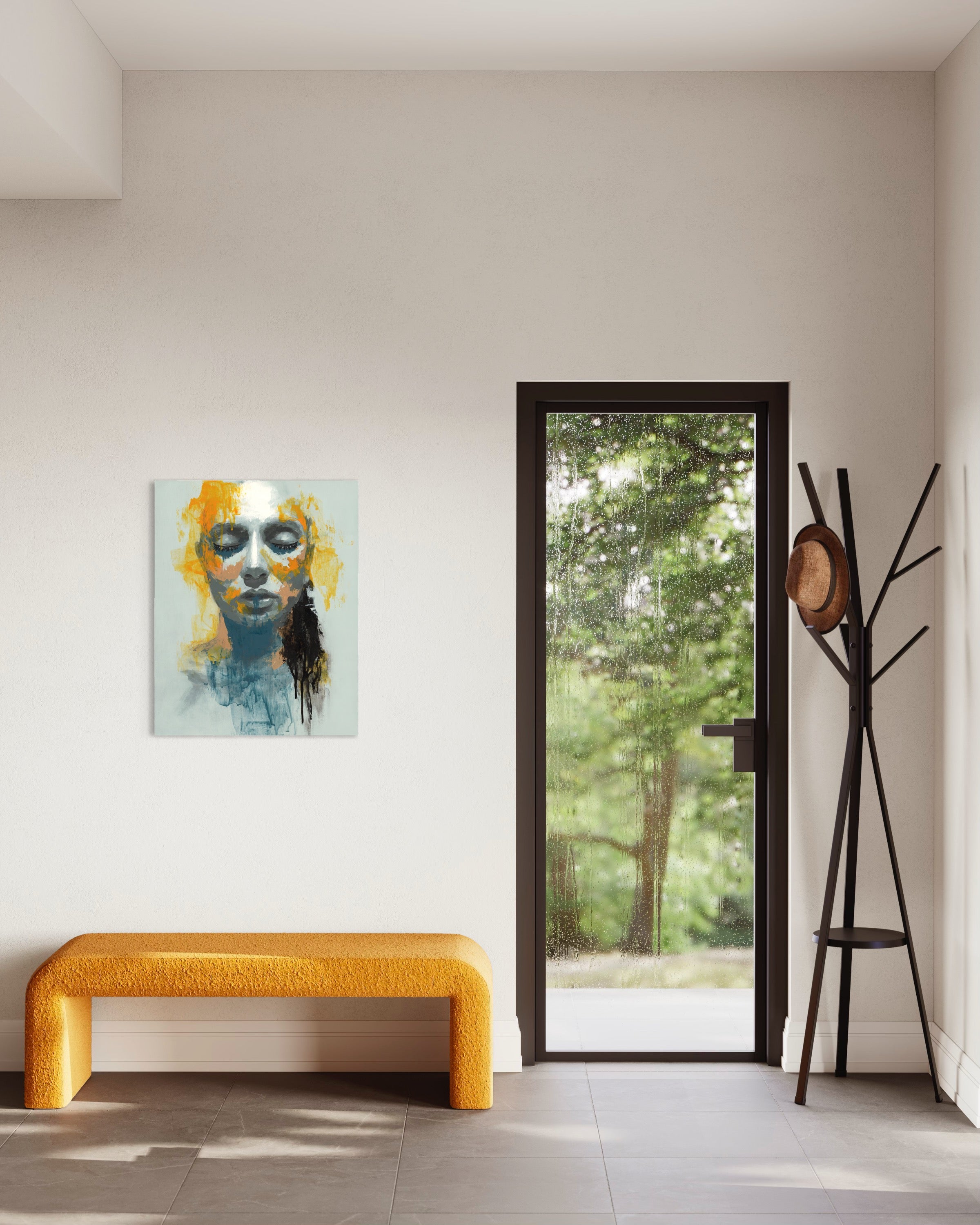
Style No. 03
Complement existing decor
Artwork can either be used as a starting point in a blank space to gain furnishing inspiration or it can be used to complete and tie a fully furnished area together.
Generally it’s best to look for common or bold hues of colour in existing décor and replicate them in a chosen art piece. If the art piece introduces additional colour ensure that the different tones are complementary to the space as a whole.
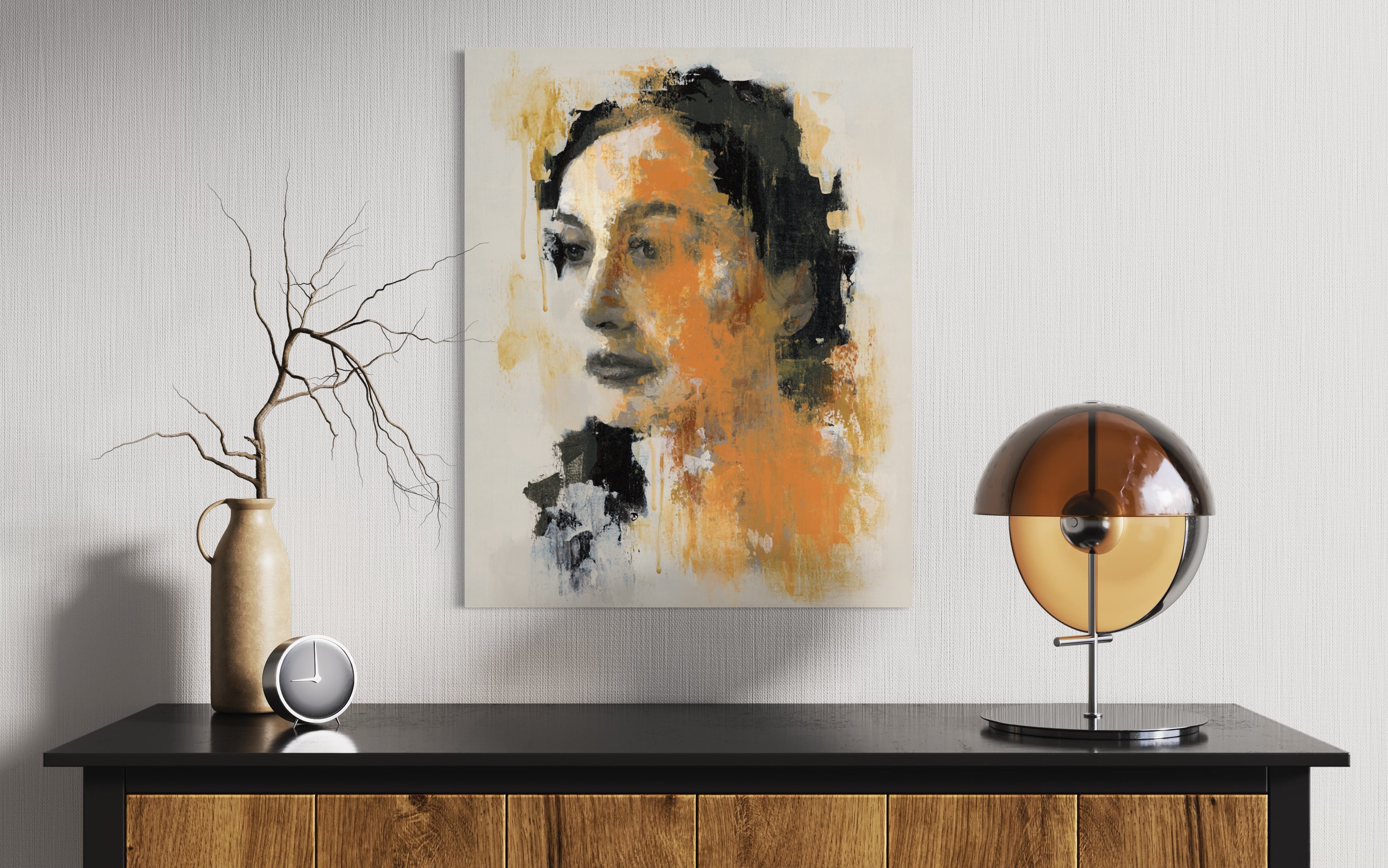
Style No. 04
Draw interest to furniture settings
When assembling art to a compact setting we encourage working around a particular scheme or narrative. A well composed display can offer distinctive charm and personality.
Here we have centralized the burnt hues of the art piece to gently extend into the bare twigs and timber cabinetry. The golden light piece is accentuating the warmth of the artwork whilst highlighting its beauty.
In some settings art can be featured resting on a surface. For a more relaxed feel we recommend tilting the art piece to lean against the wall.
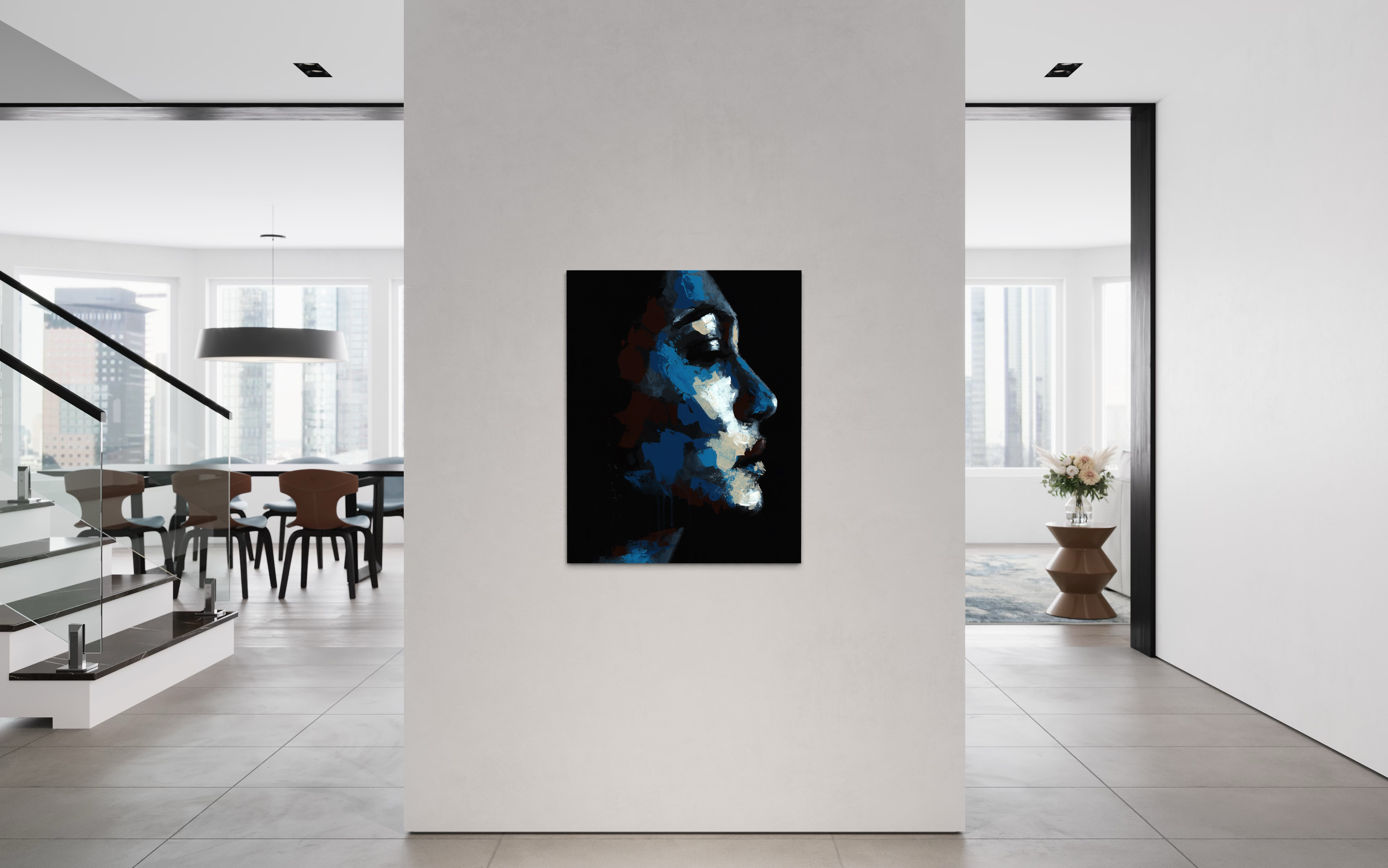
Style No. 05
The hero piece
Choosing the right wall space is essential when hanging a bold statement piece of art. Large scale artwork holds the potential to captivate and accentuate the dimensions of a room.
When positioning symmetrically ensure that there is plenty of space to step back and view the art piece. Allow the art to hold its own presence without competing for attention with nearby works of art. The center of the art piece should approximately align with a standing eye level.
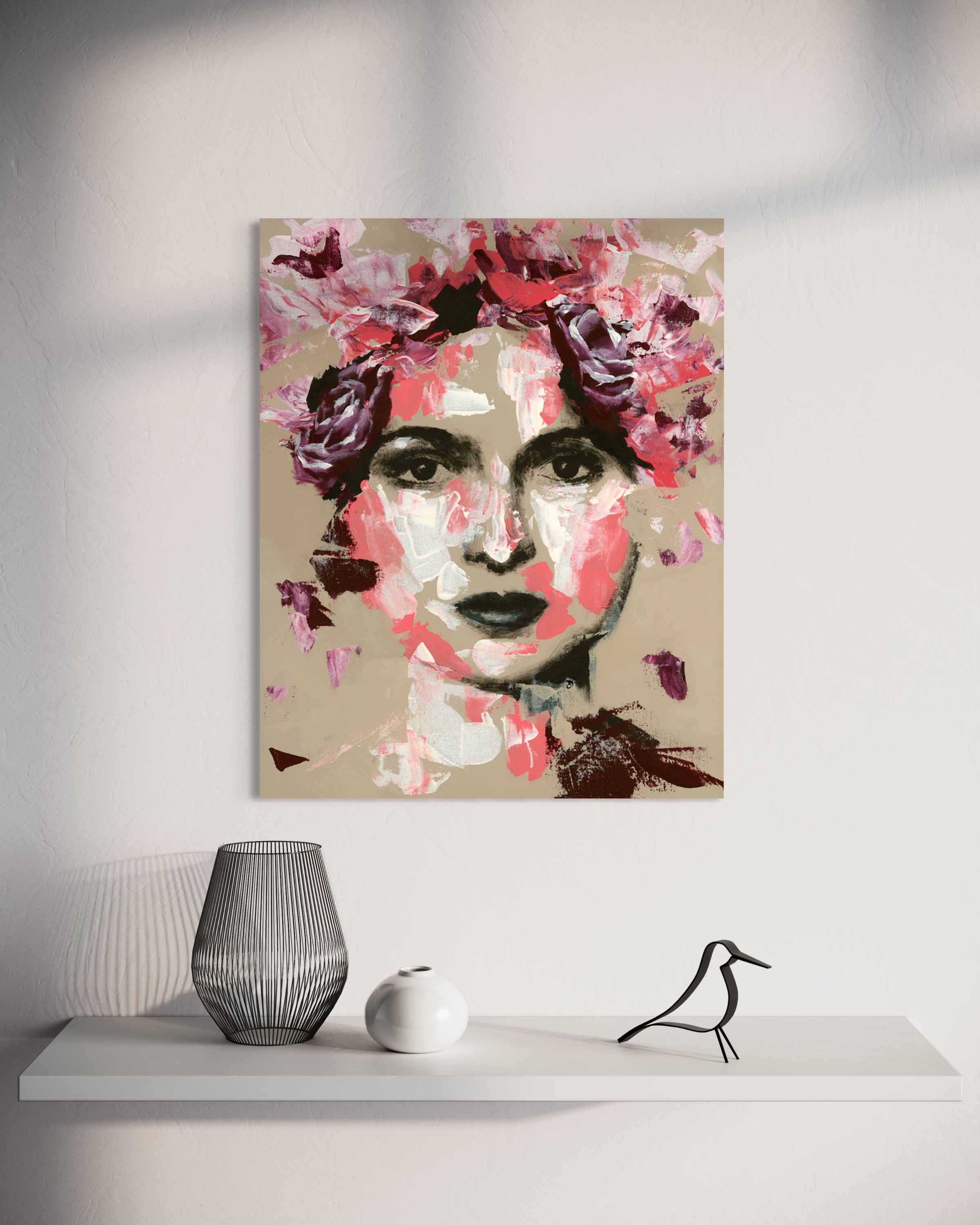
Style No. 06
Level with shelving
Placing art among ledges and shelving offers flexibility and aesthetic surprise. Shelf styling is an effortless way to create character, depth and contrast.
Artwork can be leaning or hung, paired with additional pieces or layered with objects and accessories.

